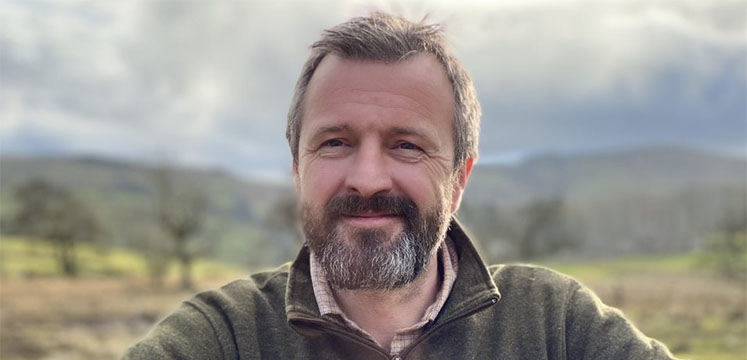
10 May 2023
The Ullswater Community Interest Company is working with local farmers to connect, expand and improve habitats by creating a series of wildlife corridors. Volunteers have been helping out with a small group meeting regularly.
Danny Teasdale explains how a hardy group of volunteers are supporting the farming community by planting trees, allowing farming and protecting cultural heritage:
As a not-for-profit, community interest company we are focused on supporting sustainable farming, conservation and natural flood management in and around the Ullswater Valley. We work very closely with the farming community and we are fully supportive of the great work they do.
The main element of our FiPL funding is to create wildlife corridors that double as livestock shelter belts. At the end of World War II, the government encouraged intensive farming to help prevent future food shortages, resulting in the country loosing approximately 70% of our hedgerows and much of our bird and wildlife populations.
It is widely accepted that we now need to plant more trees. Not only for nature, but to help with climate change – rising temperatures and flooding. Trees sequester carbon and help slow the flow of water through catchments, which is very important as we see ever more intensive flooding.
All too often people simplify the solution by suggesting block tree planting everywhere on agricultural land, whereas we believe that to really progress you need compromise. We are proving that it is possible to plant hundreds of thousands of trees in our landscape which will still allow farming and protect the cultural heritage of our landscape.
Old maps told us where the old hedges were and, where appropriate, they’re replanted and replaced with shelter belts. Wider than a standard hedgerow, shelter belts can be planted in more of a random style, as they don’t need laying like a traditional hedgerow. We’re using native local species such as Hawthorn, Blackthorn, Hazel and Crab Apple.
An added benefit for farming is that sub-dividing field parcel size can assist with rotational or cell grazing. It’s becoming popular with our farmers in their efforts to cut inputs and maximise grass growth.
There’s a small and hardy group of volunteers working on the project, with approximately 50 on our mailing list who are keen to play their part.
We’ve found FiPL to be flexible and much of the financial worry is removed as we are paid on completion. With other schemes farms would have to cash flow large sums of money, not knowing when they’ll be reimbursed. In current challenging times this is a huge deterrent.
Under FiPL, you get a project which is approved, administered and delivered locally. It’s site specific and fits into our landscape.
Find out more about the Ullswater Community Interest Company projects